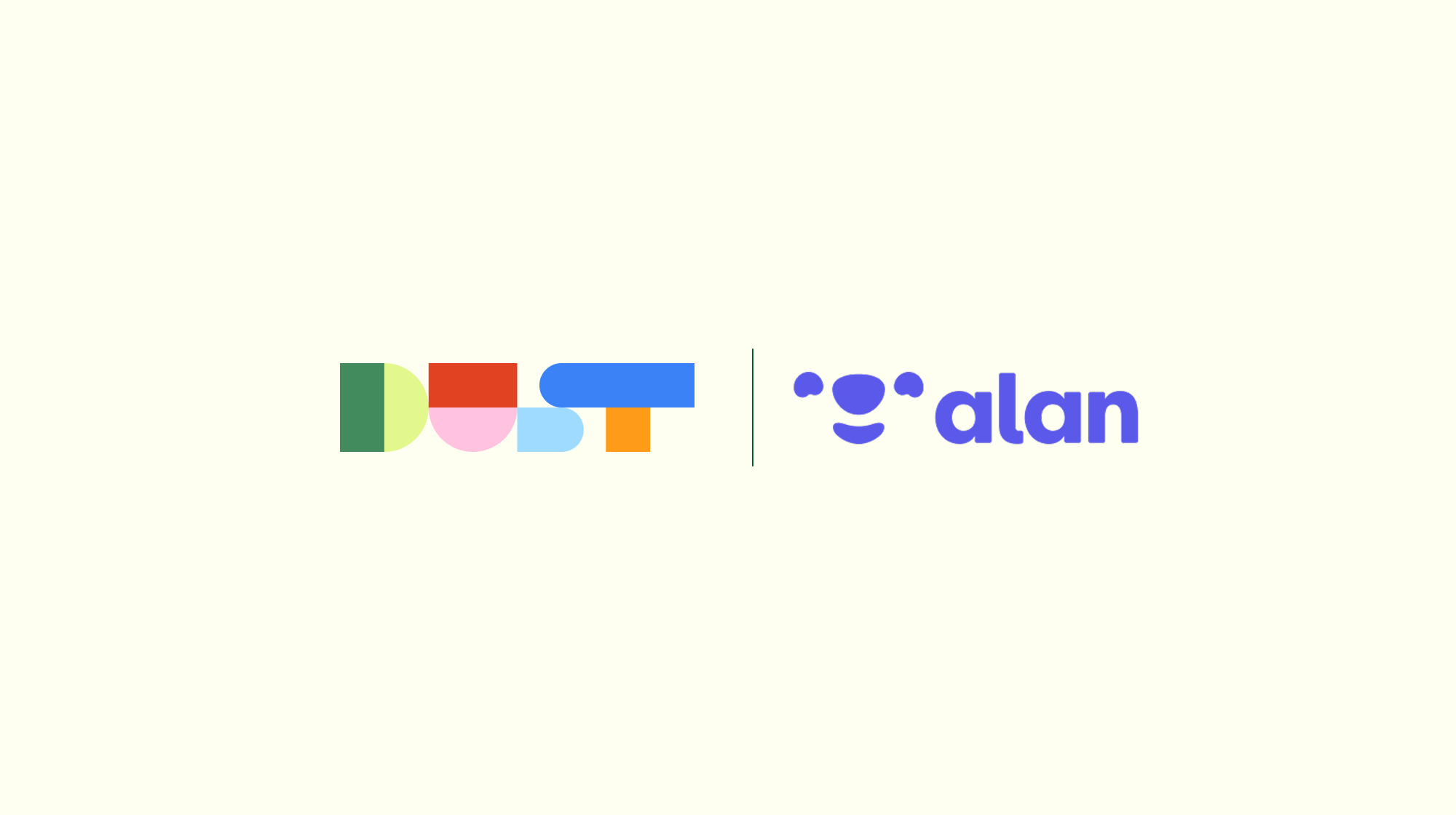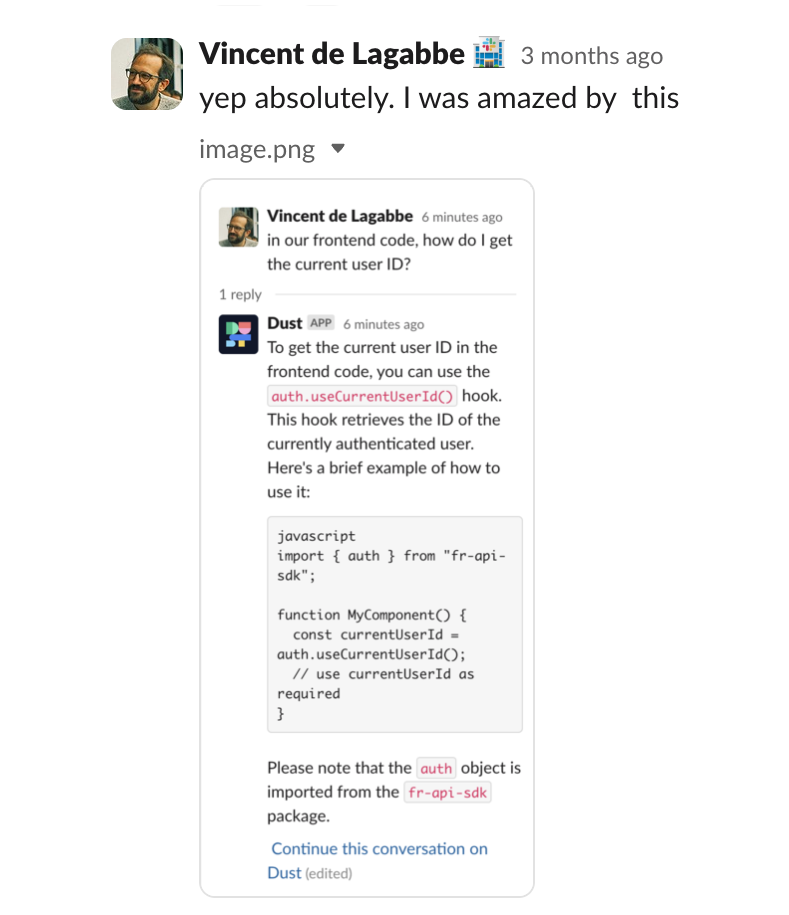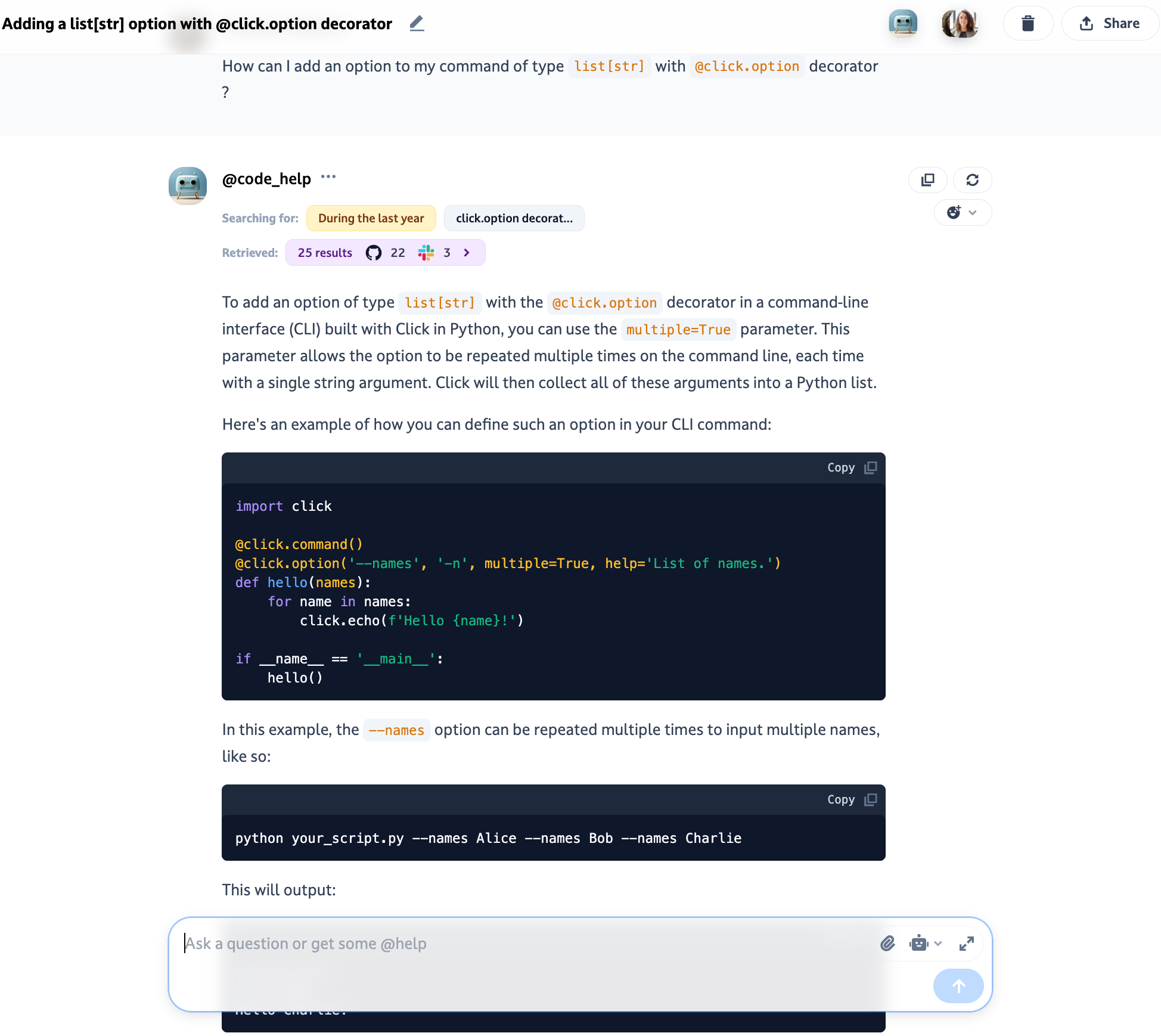How Vincent, Engineer at Alan, Uses Dust
Discover how Alan's engineering team speeds up projects 20% with Dust's AI assistant.

About Alan
Founded in 2016, Alan is a digital platform and insurer that brings a network of healthcare professionals to the fingertips of millions. With a mission to revolutionize the healthcare industry by simplifying access to care, Alan combines technology and human expertise to deliver exceptional services to its users.
Vincent, a seasoned developer with 14 years of experience, has played a crucial role in enhancing Alan's backend infrastructure. Recognizing the challenges posed by the rapidly expanding codebase and documentation, he saw the need for a tool that could streamline workflows in line with the company's growth.
How does a rapidly expanding codebase affect the efficiency of a developer's workflow, particularly in a growing company like Alan? With the challenge of managing an increasing volume of technical queries, the search for a solution becomes imperative.
The Challenge: Scaling Knowledge Management and Rapid Growth
As Alan continued to grow, Vincent encountered a challenge with document management. Alan's reliance on Notion as a platform for documentation had turned it into a "write-only" resource.
The platform's cumbersome search functionality meant that information, once documented, became difficult to retrieve. This led to increased time spent searching for information.
Simultaneously, Vincent was grappling with multilingual communication. Operating in three countries, Alan required its content to be translated across several languages. The traditional approach was dependent on the manual efforts of multilingual staff and was slow as well as resource-intensive.
In response to these challenges, Vincent turned to Dust.
The Solution: Personalized AI Assistance
Vincent initially approached the use of Dust, a tool that allows companies to make personalized AI agents, with skepticism. His previous experiences with AI tools had only offered generic responses, falling short of the specialized support he was looking for. However, after giving Dust a chance, Vincent quickly recognized its potential to enhance his workflow.
@code-help agent
He started by using Dust to ask simple questions about the codebase via Slack. Recognizing the tool's capabilities, Vincent quickly moved towards creating a more personalized AI agent. He developed @code-help, a custom Dust agent that was specifically designed for Alan's technical environment. This agent was engineered to interact with the company's development languages, technologies, and codebase, which was a significant step toward the personalized assistance Vincent was after.
Vincent's objective with @code-help was clear: users should be able to get information about the codebase by asking the same kind of questions they would pose to their fellow engineers. To achieve this, he preloaded the agent with information about Alan's technical stack and integrated the company's entire codebase into Dust. This integration allowed @code-help to provide contextual answers that were aligned with the specific coding style and best practices used at Alan.
“My ‘aha’ moment with Dust was when I asked ‘how do I get the current user ID?’ and it found the answer because people had talked about it on Slack.”

Enhancing Team Collaboration
@code-help transformed the way information was accessed and shared within Alan’s engineering team. Embedded directly into the engineering Slack channel, @code-help became a way for engineers to seek guidance on technical questions.
This integration fostered a collaborative environment where responses from the agent could be openly refined by other engineers. These peer contributions were used to improve the agent's future responses, and the use of the @code-help agent has reduced the team's project completion time by 10-20%.
“Dust does not create more processes or redesign a process but allows you to use your agent as a help to do things, rather than changing a process or workflow.”
@code-help has also transformed the way information is exchanged within the team; individuals can now consult Dust for immediate responses, and receive further feedback when other engineers are available. This shift ensures that the engineers can get the information they need precisely when they need it, even if their colleagues are busy. @code-help has become one of the most used agents internally, with over 22,608 questions asked since its inception.
"The most important thing is the amount of time Dust saves."

Going Beyond the Code
Revolutionizing Document Management
Employees at Alan have also used Dust for applications beyond code assistance. Dust has revolutionized how employees interact with Notion.
Dust’s AI agents have turned Notion into a searchable database where written and forgotten documents are easily accessible.
“What's interesting about Dust is that it surfaces with useful resources that we might have forgotten about.”
Multilingual Communication Simplified
The implementation of Dust has also streamlined multilingual communication within Alan.
Now, Dust facilitates rapid and precise translations across languages while preserving Alan's distinctive voice. This has significantly reduced the workload of the company’s translators, who now only need to make minor adjustments to the Dust’s translations.
Vincent's AI Journey
Reflecting on his journey with Dust, Vincent emphasizes the importance of viewing AI as a complement to the company’s innovation. By integrating Dust into his daily workflow, he enhanced his productivity and contributed to a culture of efficiency and continuous learning at Alan.
Vincent's journey with Dust is a down-to-earth reminder of how the right tools, used creatively, can make a big difference in simplifying the way we work.
“It's really become a reflex now to ask an agent for help, especially regarding my work on code”

